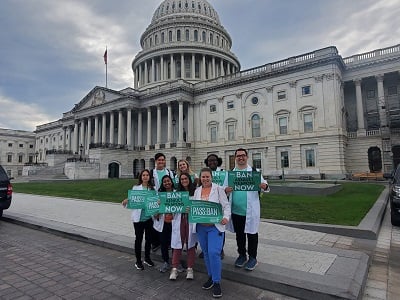
Child Health Advocacy Institute Policy Elective

The CHAI Policy Elective is a structured, two-week elective that will expose participants to pertinent topics in pediatric health policy through didactic lectures and asynchronous readings. Students will also engage in discussions with physicians and field experts who are experienced in advocacy and health policy. As future physicians, students will be able to apply this knowledge to serve as physician-advocates.
Accepted applicants will be provided a stipend to cover travel and accommodation expenses. All applicants are welcomed though we are particularly interested in those with diverse life experiences and backgrounds.
How to Apply
Applicants must be in good standing at their medical school and have completed core clinical clerkships with passing grades by the time of participation in the elective.
Please complete our online application by 11:59pm (EST) on Friday, April 28, 2023.
For more information, email us.



